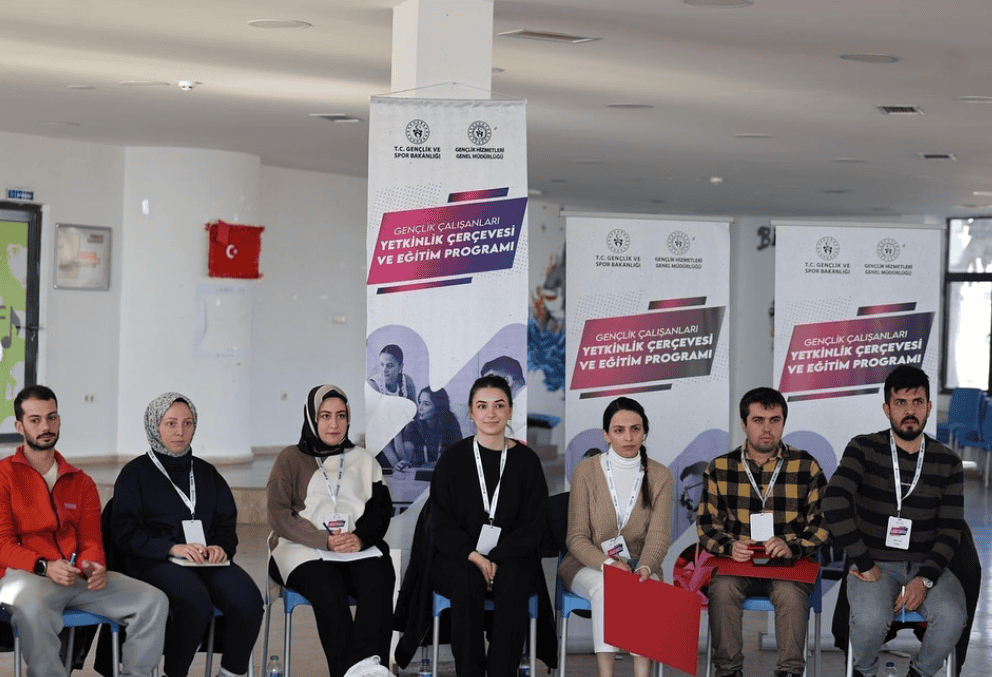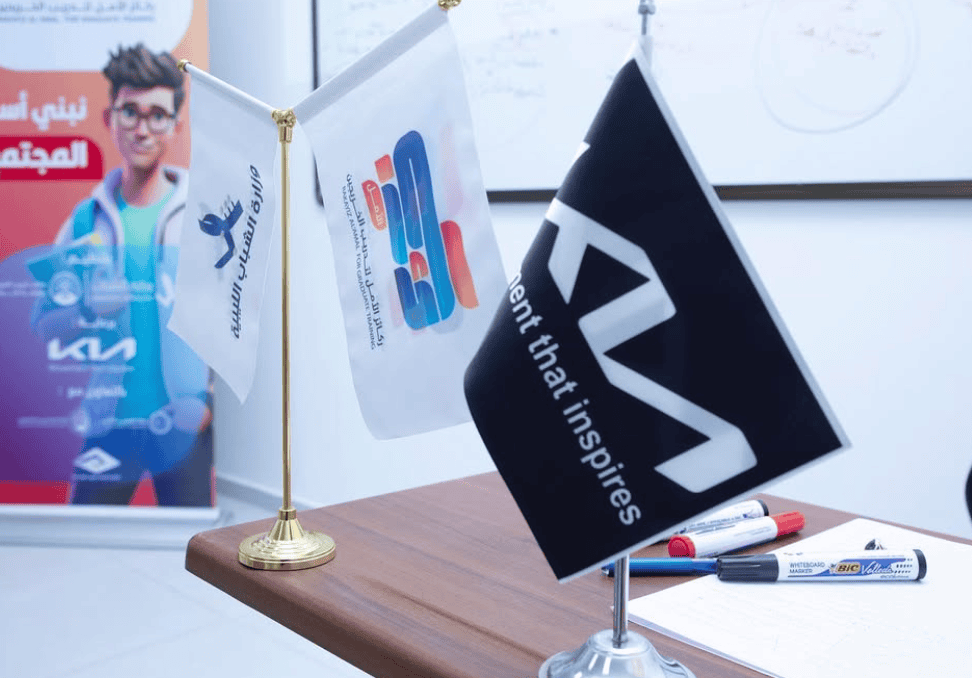Competence Framework and Training Program for Youth Workers
The core idea of the training program is to provide a clear and actionable competence framework that helps youth workers acquire the necessary knowledge, skills, and attitudes required to support the development of young people effectively.
Last Updated: October 9, 2025

Best Practice Overview
The core idea of the training program is to provide a clear and actionable competence framework that helps youth workers acquire the necessary knowledge, skills, and attitudes required to support the development of young people effectively.
Objectives:
The program aims to define and enhance the competencies that youth workers should possess. It focuses on the continuous professional development of youth workers, ensuring that they can engage with young people more effectively and contribute to their personal and social growth. The training emphasizes experiential learning with theoretical knowledge put into practice through tasks and real-life applications at youth centers.
Duration of the Initiative:
- Two months.
Preparation Phase:
- The vision of the Competence Framework and Training Program for Youth Workers is to define, develop, and enhance the knowledge, skills, attitudes, and behaviors required of youth workers, making youth work more effective, conscious, and sustainable. The program was carried out in partnership with the Department of Youth Centers under the Directorate General of Youth Services of the Ministry of Youth and Sports (MoYS) and the affiliated youth centers.
- A Program Committee was established to coordinate and prepare the program content. The initiative, from its inception to implementation and conclusion, was under the responsibility of the Program Committee. Initially, the program coordinator worked on conducting a needs analysis, examining best practices, and creating and developing training content.
- During this process, internationally recognized competence frameworks were reviewed, and best practices were identified. The program was designed to be implemented using non-formal education methods, with communication established with experts in this field. To develop training content and implementation strategies, the trainer team worked closely with the program coordinator. The Program Committee also included specialists from the Ministry.
- A team consisting of performance evaluation and reporting specialists was formed to establish evaluation criteria, conduct surveys, and ensure the necessary arrangements for reporting. The Program Committee was responsible for effectively managing and overseeing all processes throughout the training program.
- The program’s timeline for implementation spanned over two-months period. Initially, the needs analysis was completed, followed by the inclusion of participants (youth workers) and the commencement of modular training. A detailed schedule was created for each module and shared with both participants and trainers.
- To enhance the visibility of the training program and reach a broader audience, a comprehensive media plan was prepared. Significant moments and success stories from the training process were published as digital content.
- The necessary human, financial, material, and technical resources for the training were meticulously identified and secured. Non-formal education trainers and the Ministry’s experts were appointed to oversee and conduct the training. The Ministry’s premises, Youth Camps were utilized to host the training program including accommodation of the youth workers, throughout the program. The official transportation and logistical arrangements were made by the Ministry.
- The required digital tools and materials were also prepared in advance. Training materials were planned prior to the training with a material list obtained from the expert trainer team.
- As the first stage of the program, training was firstly introduced to the newly recruited youth workers of the MoYS. At the second stage of the program, the training is planned to be introduced incumbent youth workers within MoYS.
Implementation Phase:
- Since the program was designed for youth workers employed under the Ministry of Youth and Sports, they were not subjected to a selection process for participation as it was designed as a compulsory training. A detailed information package outlining the training content, objectives, and schedule was prepared and shared with the youth workers one week prior to the training.
- The training was composed of 6 terms in total. During the training process, youth workers from Türkiye’s seven regions were grouped into sessions with a maximum of 30 participants for each term (7×30 for a single term of training). Before joining the training program, participants were given a pre-test to measure and evaluate their competencies. This pre-test included questions aimed at assessing the competencies covered in the training modules.
- When establishing the program committee, special attention was paid to forming a system that included the program coordinator, Ministry experts, trainers, and evaluation specialists. Throughout the entire process—from the design and implementation of the program to its conclusion—all stages were monitored and supervised by the program committee.
- The program coordinator worked on ensuring the smooth execution of all planned activities, including training modules and logistical arrangements. Trainers and program coordinators collaborated to monitor the progress of participants during the training.
- Performance evaluation teams developed criteria and tools such as surveys and feedback forms to assess the effectiveness of the training. Feedback from participants was gathered informally during the sessions to ensure the content met their expectations and addressed their needs.
- The training materials were prepared by the trainers prior to the start of the training, based on international studies and research.
- Reports were prepared at various stages, including needs analysis, training outcomes, and post-training evaluations.
- A comprehensive guidebook, “Youth Worker’s Handbook,” was distributed at the end of the program, summarizing key competencies and training content.
Post-Initiative Phase:
- The evaluation of the initiative was a comprehensive process aimed at assessing both the effectiveness of the training and the development of youth workers’ competencies.
- Performance evaluation teams developed criteria and tools such as surveys and feedback forms to assess the effectiveness of the training.
- At the end of the training, a post-test was administered to measure the development of participants’ competencies and to assess whether the training content was sufficient. The post-test results were compared with the pre-test to evaluate individual and group progress.
- Quantitative data from the pre- and post-tests were compiled and analyzed to demonstrate participant progress. Metrics such as participation rates, engagement levels, and competency improvement percentages were calculated.
- Survey and questionnaire responses were summarized to reflect participant satisfaction and suggestions for improvement.
- Program Committee provided written evaluations of the program’s execution, including any challenges and successes.
- A final report was prepared by evaluation specialists; the structure is as follows:
- Introduction: Purpose, scope, and objectives of the program.
- Methodology: Description of the training process, including the evaluation framework.
- Findings:
- Results from pre- and post-tests
- Participant feedback and satisfaction levels
- Trainer evaluations and observations
- Conclusion: Summary of key achievements and areas for improvement.
Other Best Practices
Explore similar initiatives that have empowered youth in entrepreneurship and innovation.
“Beban” TV Show
Beban is an entrepreneurial-themed show that provides diverse entrepreneurs the opportunity to pitch their business concepts to a panel of investors for immediate investment.
Masari Project
Masari, meaning "pathway" in Arabic, is a talent development program launched in 2022. It offers diverse tracks, including scholarships, global training, exchange programs, adventures, and job shadowing, through strategic partnerships to empower young talents.
Pillars of Hope
The Pillars of Hope program is an eight-week initiative aimed at equipping recent graduates with practical experience and enhancing their employment prospects. By focusing on key vocational fields and collaborating with strategic partners, the program helps bridge the gap between education and the labor market, contributing to reducing unemployment and fostering career growth.




